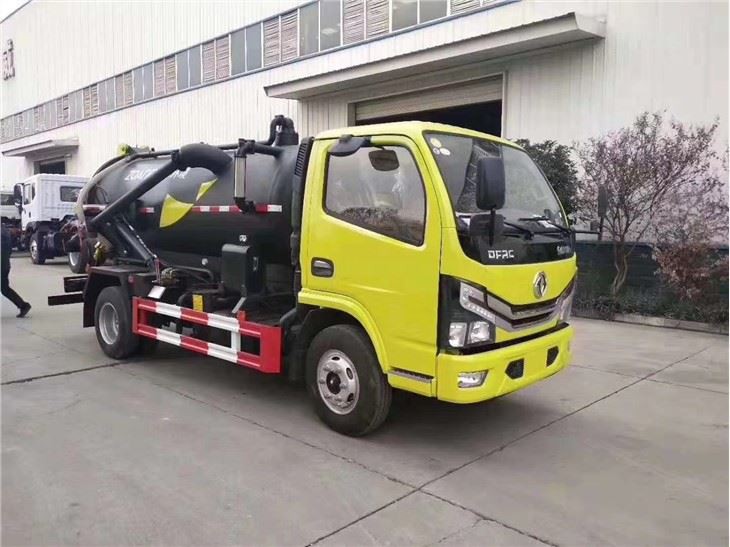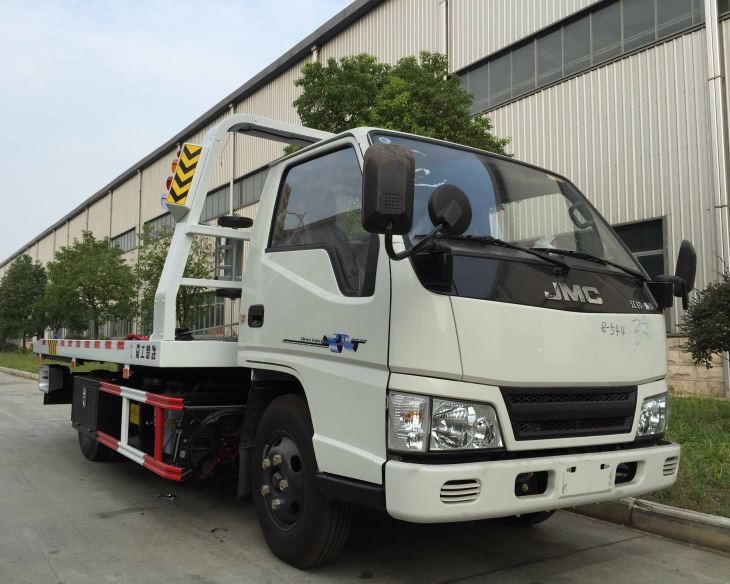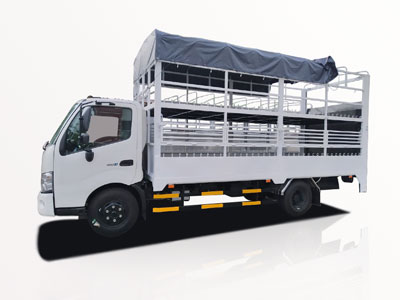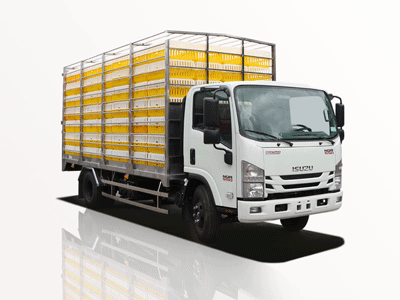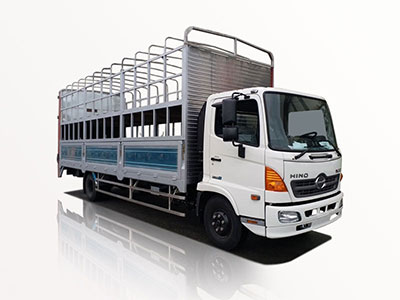Fuel truck delivery is a critical part of the supply chain for several industries, including transportation, construction, and agriculture. Understanding the logistics behind fuel delivery can help businesses optimize operations and manage costs effectively. In this article, we will explore the intricacies of fuel truck delivery, including its benefits, processes, and essential tips for businesses.
What is Fuel Truck Delivery?
Fuel truck delivery refers to the transportation of fuel products from a storage facility or fuel depot to various end-user locations. These might include gas stations, construction sites, farms, and industrial plants. The delivery process involves specialized vehicles designed to safely transport liquid fuels like gasoline, diesel, and heating oil.
The Role of Fuel Delivery Trucks
Fuel delivery trucks are equipped with specific features that make them suitable for transporting hazardous materials. These features include:
- Safety Standards: Fuel trucks must comply with local regulations regarding hazardous materials transportation.
- Insulated Tanks: These help prevent temperature fluctuations that can affect fuel quality.
- Pumping Mechanisms: Advanced pumps facilitate efficient loading and unloading of fuel.
Benefits of Fuel Truck Delivery
Convenience
One of the primary benefits of fuel truck delivery is convenience. Companies can schedule deliveries based on their operational needs, ensuring they always have the fuel required to run their operations efficiently. This is particularly useful for businesses that require large quantities of fuel.
Cost-Effectiveness
Buying fuel in bulk and arranging for delivery can often result in cost savings. Many fuel delivery services offer competitive pricing for businesses that place regular orders. Furthermore, avoiding frequent trips to gas stations can reduce transportation costs.
Quality Assurance
Reliable fuel delivery companies adhere to strict quality standards to ensure that the fuel delivered is free from contaminants. This helps maintain the efficiency and longevity of equipment that relies on quality fuel.
How Fuel Truck Delivery Works
The Ordering Process
Ordering fuel usually involves a straightforward process:
- Contact the Supplier: Customers reach out to fuel suppliers to discuss their needs.
- Get a Quote: Suppliers provide a quote based on the type and quantity of fuel required.
- Schedule a Delivery: Delivery dates and times are agreed upon.
Factors Influencing the Ordering Process
Several factors can influence how and when fuel is ordered, including:
- Current fuel prices
- Operational schedules
- Seasonal demand
Delivery Logistics
Once the order is placed, the logistics of fuel delivery come into play:
- Loading the Truck: The delivery truck is filled with the ordered fuel at a designated facility.
- Transportation: The truck travels to the delivery location, adhering to safety regulations.
- Unloading: Commanded by the delivery operator, fuel is safely unloaded into the storage tanks at the client’s site.
Types of Fuels Delivered
Gasoline
Gasoline is the most commonly used fuel for vehicles. It’s essential for gas stations, with fuel trucks making regular deliveries to keep the pumps stocked.
Diesel
Diesel is primarily used in commercial vehicles like trucks and buses. It is also vital for heavy machinery in construction and agriculture, requiring tailored delivery services.
Heating Oil
Heating oil is used in residential and commercial heating systems. Delivery schedules for heating oil often peak in the colder months when demand rises.
Specialty Fuels
Some businesses require specialty fuels, such as biofuels or alternative energy sources. These might have different delivery requirements and processes, often focusing on eco-friendly solutions.
Challenges in Fuel Truck Delivery
Regulatory Compliance
Fuel delivery services must comply with various regulations, including local and federal guidelines for transporting hazardous materials. Non-compliance can lead to hefty fines and legal issues.
Logistical Challenges
Fuel delivery can be logistically challenging due to:
- Navigating traffic
- Managing unexpected delays
- Adhering to tight delivery schedules
Fuel Quality Concerns
Maintaining fuel quality during transportation is crucial. Contaminants can enter during delivery, so reputable services employ protective measures and conduct regular checks.
Choosing the Right Fuel Delivery Service
Factors to Consider
When selecting a fuel delivery service, consider the following:
- Reputation: Look for customer reviews and ratings.
- Certification: Ensure the company is certified and adheres to safety regulations.
- Pricing: Compare prices and ask about bulk delivery discounts.
- Delivery Flexibility: Check if they can meet your specific scheduling needs.
Example of Fuel Delivery Services
Below is a table comparing three popular fuel delivery services:
| Company | Types of Fuel | Delivery Area | Delivery Frequency | Price per Gallon |
|---|---|---|---|---|
| Company A | Gasoline, Diesel | East Coast | Weekly | $3.50 |
| Company B | Heating Oil | Midwest | Bi-weekly | $3.80 |
| Company C | Biodiesel, Biofuel | West Coast | Monthly | $4.00 |
Best Practices for Fuel Truck Delivery Clients
Maintain Clear Communication
Establish a clear line of communication with your fuel supplier to discuss needs, changes, or any issues that arise. Regular communication can lead to better service and satisfaction.
Regular Fuel Monitoring
Monitor your fuel levels regularly to prevent running low. Having a tracking system or service in place can help you become more proactive in managing your fuel supply.
Implement Safety Protocols
Safety protocols are vital when receiving fuel deliveries. Ensure that your staff is trained in safety measures and that your delivery area is accessible and clear of hazards.
The Future of Fuel Truck Delivery
Technological Innovations
Technology is shaping the future of fuel delivery in several ways:
- Automated Dispatch Systems: Technology can optimize routes and reduce delivery times.
- Real-time Tracking: GPS tracking allows clients to monitor their fuel deliveries in real time.
- Electric Delivery Trucks: The shift to electric delivery vehicles can reduce carbon footprints and operational costs.
Sustainability Trends
Sustainability is becoming increasingly important in fuel delivery. Many companies are investing in reducing emissions and using greener delivery methods, including alternative fuels.
FAQs About Fuel Truck Delivery
1. How often should I schedule fuel deliveries?
The frequency of fuel deliveries depends on your fuel consumption. Businesses with higher demand may require weekly or bi-weekly deliveries, while others might manage with monthly deliveries.
2. How do I choose the right type of fuel for my needs?
Choosing the right fuel involves considering what type of machinery or vehicles you use, their fuel requirements, and the cost of different fuel types.
3. What should I do if my delivery is late?
If your fuel delivery is late, contact your supplier immediately. Most reputable companies will provide updates on delays and reschedule deliveries as needed.
4. Are there any safety precautions I should take during delivery?
Ensure that the delivery area is clear of obstacles, restrict access to unauthorized personnel, and have fire safety equipment available. Everyone involved in the delivery should wear appropriate personal protective equipment (PPE).
5. How can I ensure the quality of delivered fuel?
Choose a reputable delivery service and inquire about their quality assurance measures. Storage tanks should also be checked regularly to maintain fuel quality.
6. What are the signs that I need to schedule a fuel delivery?
Common signs that indicate a need for a fuel delivery include low fuel gauge levels, decreased machinery performance, and unexpected increases in fuel consumption.
